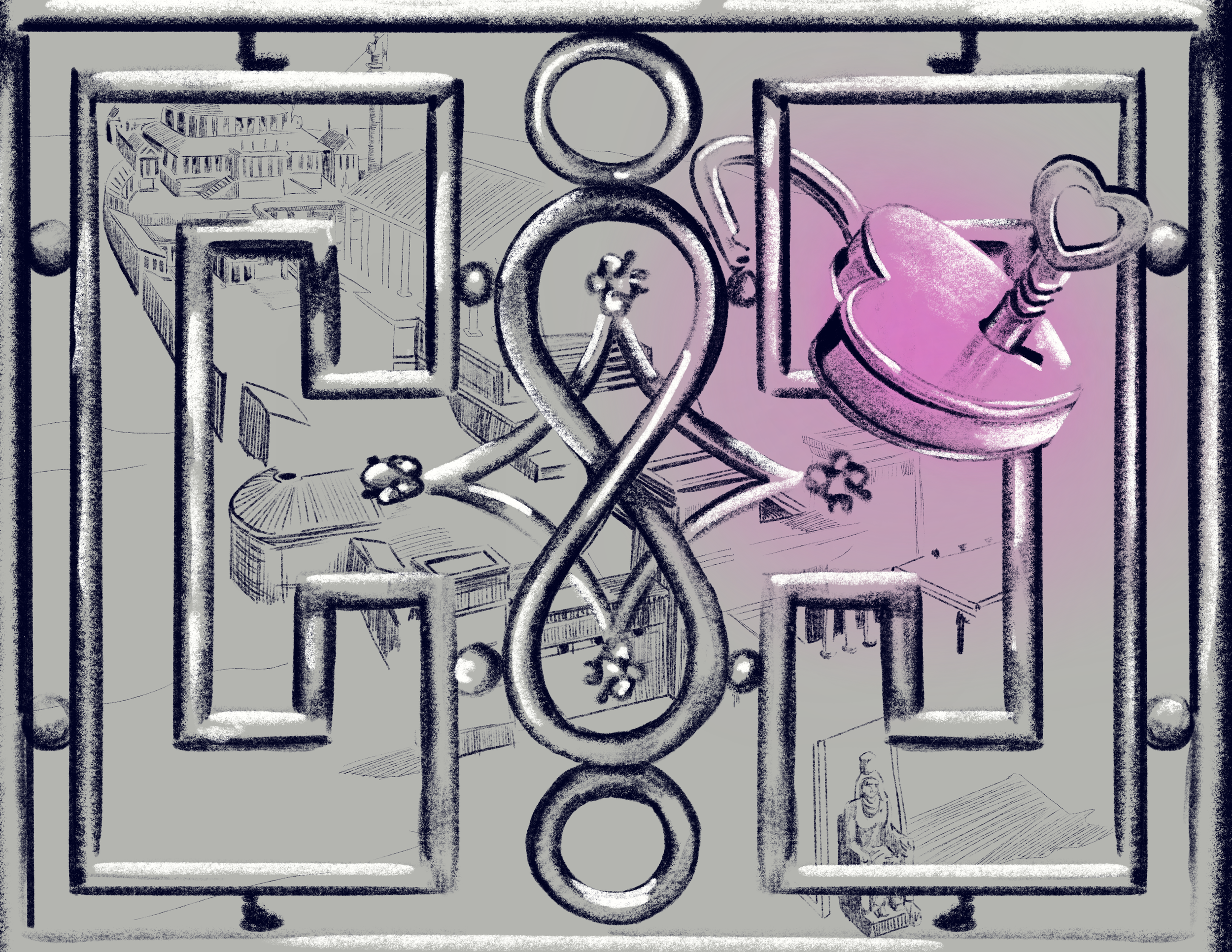The Burning Of Alexandria
Illustration by Amelia Tran
The ancient Library of Alexandria was known as a capital of knowledge and learning before it was burned by Julius Caesar in 48 BC. The burning of Alexandria caused the loss of half a million scrolls containing historical information and records of inventions. The extent of the knowledge that was lost is unknown, never to be discovered.
The open-ended conclusion to this piece of history fascinates me. What was discovered in the ancient times? Would society look different if that knowledge had survived? We will never know what was once known, or if that knowledge was ever rediscovered later in history.
When I was younger, I would handwrite journal entries in a little pink diary, complete with a heart-shaped lock, back when lock-and-key journals were the cool way to commemorate your inner thoughts. I liked the idea of having memories to look back on, a peek into my own mind at a certain moment in time. Obviously, I didn’t like that idea as much as I thought, because when I looked back on these journals I’d get embarrassed, tearing apart the pages and forever erasing those hard copies of my thoughts and feelings. Though my diary was under lock and key, meant for my eyes only, the very idea of someone else being able to look through my most personal experiences horrified me, to the point where I felt destruction was my only option.
When you’re younger, every emotion feels so eternal and all-consuming. I never thought that the melodrama of my younger self would be something I’d be able to move on from and look back at with clarity and fondness. Destroying these journals is one of my biggest regrets. Like the burned texts of Alexandria, the things I wrote will never be known or found again, because I no longer remember.
In the modern age of technology, the idea of a forever loss is nearly unfathomable. The burning of Alexandria would not be such an overwhelming loss, had the technology existed to save copies of the records. Today, all of our data is backed up on phones and hard-drives, loaded onto the cloud to ensure that nothing is ever truly lost. Even deleted photos can be recovered from trash folders to ensure there’s always a second chance at saving them. Now, I write stream-of-consciousness journal entries into my notes app, protected by that handy recently-deleted recovery feature. Our digital footprints will last far longer than our physical beings. But is a digital legacy all we will leave behind?
What would happen if the trust we place in technology backfired? If somehow, someday, all was erased from our devices, hard-drives, the cloud, and the web. What would be left as our legacy, as individuals and as a community?
The point of this is to say, sometimes I fear for a life lived online. I no longer fear being seen and consumed, as my younger self did. Instead, I question whether any pieces of me will be left behind. As the average person who heavily relies on her phone and other devices, who connects with people largely through social media and online avenues, and whose journal entries and memories are digitally made and saved...the evidence of my life is largely in my digital footprint. If I were to lose this, it feels as though a large portion of my history and identity would be lost, never to be found again.
The beauty of living is in the connections we make, in the relationships we form, in memory and in grounding pieces that call back to significant moments. The burning of Alexandria teaches us a lasting lesson about the importance of preservation. But too often, we lose ourselves in the convenience of technology, allowing our histories to stay commemorated in the cold and unfeeling digital world. As I grow older and reflect on regrets I have, like the destruction of my old journals, I’ve realized the importance of grounding myself and my identity in the physicality of the world. I want to be able to look through physical scrapbooks of memories with my future children, to give them old journals to pass on the wisdom which only comes with aging and a life well-lived. I want to own clothes and material items made with quality to last the test of time, rather than over-consuming cheap and unethically made trendy items, made only to last the short length of the trend cycle. I want to emphasize the significance of seeing loved ones in person, of being able to see, hear, and feel them in front of you, rather than through a screen.
I want a legacy I can hold in my hands, rather than one I can look up online.

